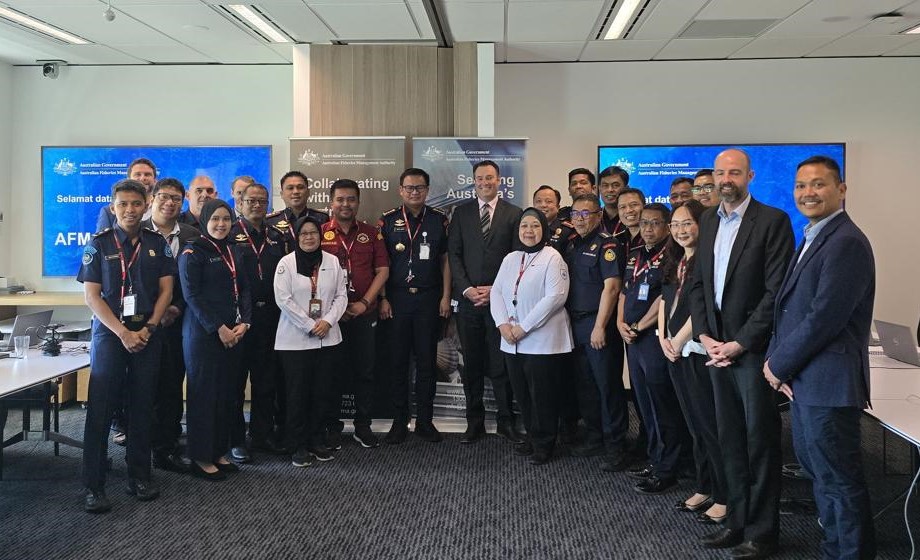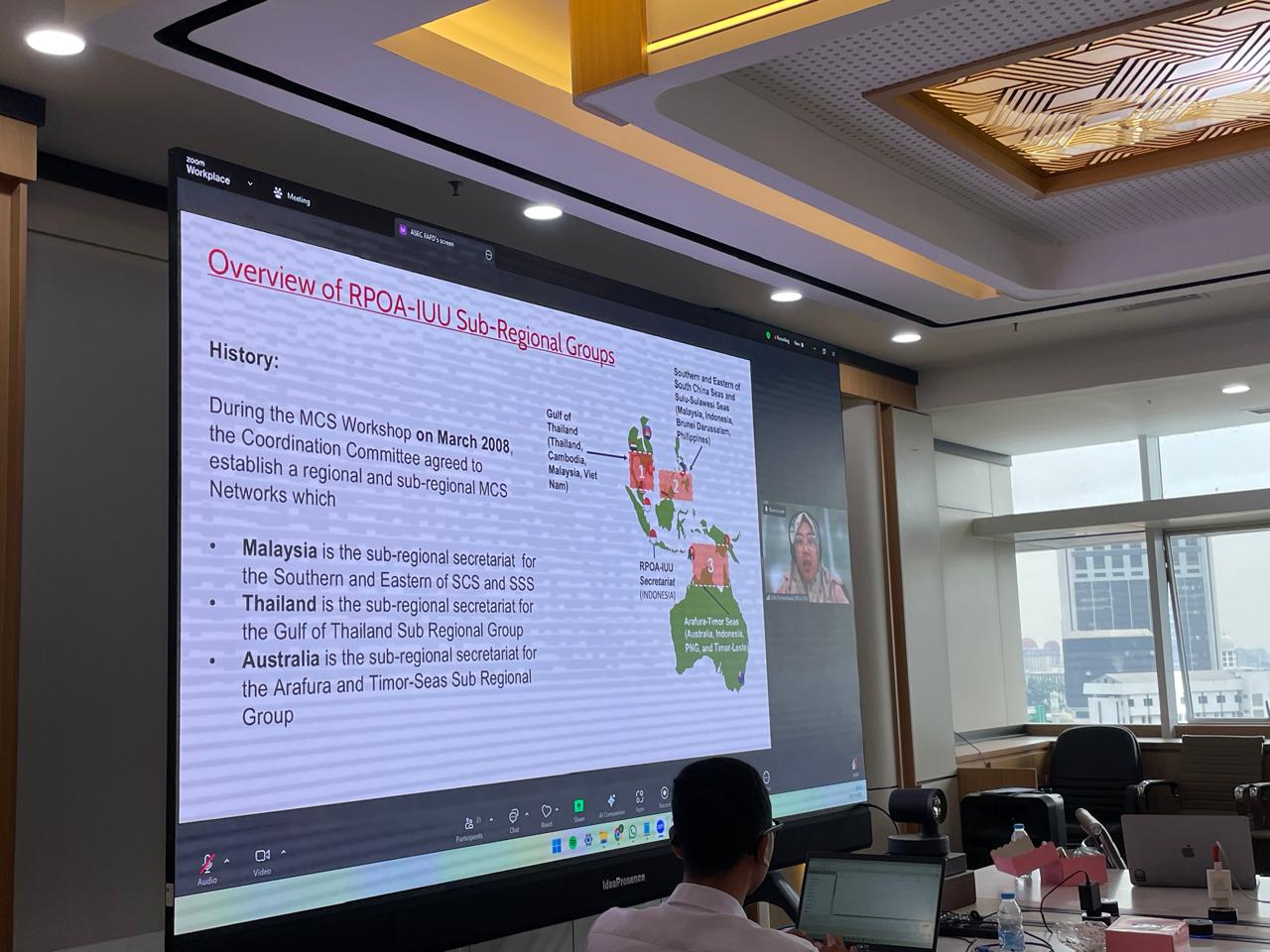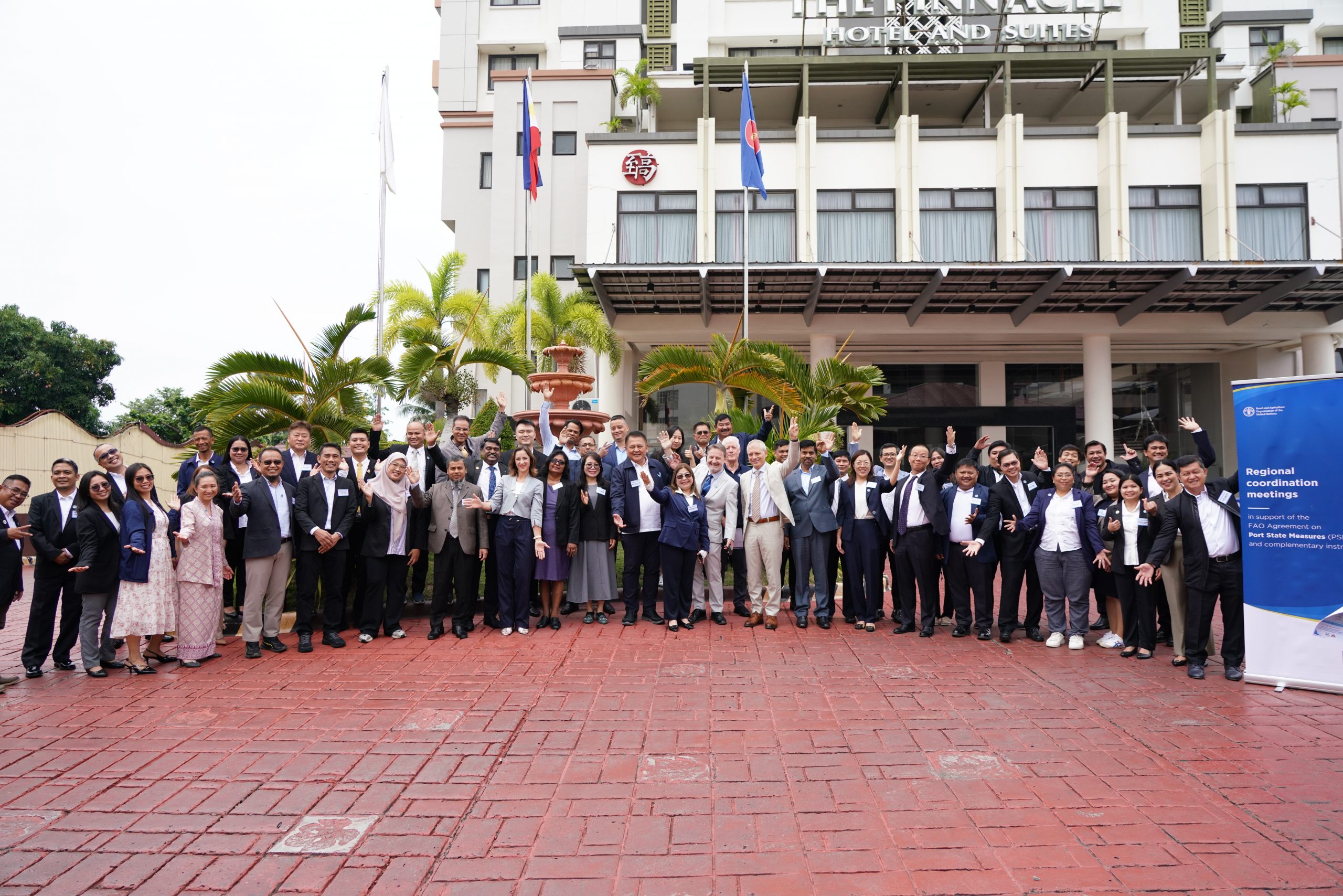 The Ministry of Marine Affairs and Fisheries (MMAF) is implementing a blue economy policy in the development of the marine and fisheries sector. One of its key policies is a quota-based fisheries management, integrating ecological, social, and economic approaches to support the sustainability of fishery resources. However, limited infrastructure and human resources for compliance enforcement pose significant challenges. Risk-based compliance has emerged as a relevant approach, prioritizing enforcement actions based on risk analysis. Consequently, capacity building for fisheries inspectors and related stakeholders in fisheries management has become an urgent necessity.
The Ministry of Marine Affairs and Fisheries (MMAF) is implementing a blue economy policy in the development of the marine and fisheries sector. One of its key policies is a quota-based fisheries management, integrating ecological, social, and economic approaches to support the sustainability of fishery resources. However, limited infrastructure and human resources for compliance enforcement pose significant challenges. Risk-based compliance has emerged as a relevant approach, prioritizing enforcement actions based on risk analysis. Consequently, capacity building for fisheries inspectors and related stakeholders in fisheries management has become an urgent necessity.
On October 16-18, 2024, the Indonesia MMAF and the Australian Fisheries Management Authority (AFMA) conducted a Capacity Building Workshop in Canberra, Australia, focused on “Developing a Risk-Based Fisheries Compliance Strategy to support Quota-Based Fisheries Management.”. The workshop aimed to:
- share experience implementing a quota-based fisheries management
- assist MMAF to develop Indonesia’s national risk-based compliance strategy.
Officials from various divisions in MMAF led by the PSDKP Director of Patrol Fleet Operations and control conducted a workshop with AFMA to gain insights into Australia’s quota-based fisheries management and risk-based compliance policy, including advanced Monitoring, Control, and Surveillance (MCS) systems such as Vessel Monitoring Systems (VMS) and E-Monitoring. This workshop was delivered under the Australian Government Combating IUU Fishing and Promoting Sustainable Fisheries in Southeast Asia (SEA IUU Fishing) Program.
The workshop included comprehensive discussions led by AFMA on policies aimed at addressing illegal, unreported, and unregulated (IUU) fishing. AFMA shared its risk-based compliance policy to support quota-based fisheries management. AFMA highlighted how targeted risk assessments support effective compliance measures to achieve sustainable fisheries. The Indonesian delegations explored adapting these strategies for their national framework, with plans to draft a risk-based compliance strategy for Indonesia’s fisheries sector, incorporating identified high-risk areas as a key focus.
During the workshop, the Indonesian delegations delivered presentations on:
- fisheries management including legislation and regulations.
- MCS tools (including vessel monitoring systems, observer program, and logbooks)
- The current fisheries compliance and enforcement programs including the development of a risk-based compliance strategy; and enforcement measures applied in Indonesia such as vessel inspection, investigation of offences and prosecutions.
- Risk-based compliance strategy development
- update on a quota-based fisheries management pilot project (including quota allocation, vessel registration and license and fisheries committees/ stakeholder engagement)
 Additionally, the Indonesian team visited several Australian agencies, including the Maritime Border Command (MBC), the Department of Agriculture, Fisheries and Forestry (DAFF), and the Department of Foreign Affairs and Trade (DFAT). These visits further strengthened partnerships and reaffirmed joint commitments to combating IUU fishing in the region. These visits also provide opportunities between Indonesia and Australia to discuss marine and fisheries longstanding cooperations including continued joint patrols. MMAF also requested support from Australia on the development of a regional data sharing and a regional fisheries intelligence network under RPOA-IUU framework. MMAF and DFAT also discussed potential support for alternative livelihoods to overcome the border-crossing issue by fishers from eastern Indonesia. Moving forward, the Regional Plan of Action to promote responsible fishing practices including combating IUU Fishing (RPOA-IUU) will align its priorities and programs with the SEA-IUU Program through targeted capacity-building initiatives, scheduled to continue until 2027, ensuring stronger MCS and responsible fisheries management across Southeast Asia.
Additionally, the Indonesian team visited several Australian agencies, including the Maritime Border Command (MBC), the Department of Agriculture, Fisheries and Forestry (DAFF), and the Department of Foreign Affairs and Trade (DFAT). These visits further strengthened partnerships and reaffirmed joint commitments to combating IUU fishing in the region. These visits also provide opportunities between Indonesia and Australia to discuss marine and fisheries longstanding cooperations including continued joint patrols. MMAF also requested support from Australia on the development of a regional data sharing and a regional fisheries intelligence network under RPOA-IUU framework. MMAF and DFAT also discussed potential support for alternative livelihoods to overcome the border-crossing issue by fishers from eastern Indonesia. Moving forward, the Regional Plan of Action to promote responsible fishing practices including combating IUU Fishing (RPOA-IUU) will align its priorities and programs with the SEA-IUU Program through targeted capacity-building initiatives, scheduled to continue until 2027, ensuring stronger MCS and responsible fisheries management across Southeast Asia.
This workshop successfully established the foundation for the development of a risk-based compliance and enforcement strategy tailored to Indonesia’s needs, including the development of a national strategy document to serve as an operational guide for law enforcement, capacity building, and technology integration supported by Australia, as well as collaboration to combat cross-border IUU Fishing. This approach is expected to create an effective fisheries surveillance system aligned with Indonesia’s legal framework.




